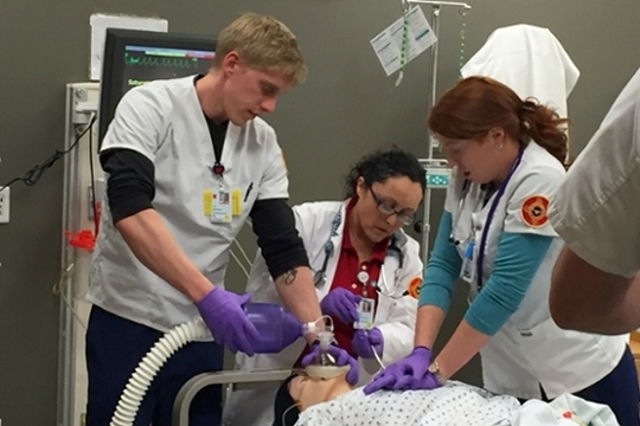
Nursing ETDs
Publication Date
Spring 4-15-2019
Abstract
ABSTRACT
Low-income adolescent males are subject to both health and educational inequities. Male adolescents are the least likely of all pediatric age and gender groups to access either primary care or behavioral health services. This same population is most likely to not complete high school or college. Health and educational outcomes are both affected by social determinants. School-based Health Centers (SBHCs) are known for providing access to primary care and behavioral health services for low-income and vulnerable populations. The purpose of this qualitative descriptive study was to identify themes from one-on-one semi-structured qualitative interviews with behavioral health providers, who provide services to low-income adolescent males in SBHCs in high schools in New Mexico, in order to learn the providers’ perspectives on how behavioral health services may impact adolescent males academically. Another purpose was to identify providers’ stories for policy messaging. Seventeen behavioral health providers from SBHCs across New Mexico were interviewed and data from those interviews was analyzed using content, thematic, and narrative analyses. Providers described seeing adolescent males for behavioral health diagnoses, post-traumatic stress disorder, depression, anxiety, substance abuse and adverse life events. Many providers attributed adolescents’ behaviors to family conflict and trauma. Providers described masculinity norms, at home and at school, as barriers to accessing behavioral health services and academic achievement. Additional themes included lack of school resources and unfavorable school environments; trusting relationships with behavioral health providers and safe space provided by SBHCs. When asked what they would say if they were advocating for policy related to behavioral health services, providers shared long stories to explain students’ lives and provide context. Clinical implications include the need for more gender-based approaches as well as trauma informed schools and SBHCs. Further research that includes voices of adolescent males is needed as well as more quantitative data that helps to further illuminate the protective factors that SBHCs provide to students. More collaboration is needed between all social services such as housing, Children Youth and Families, and transportation, that touch the lives of students and families in New Mexico, in particular the health and educational systems.
Degree Name
Nursing
Level of Degree
Doctoral
Department Name
College of Nursing
First Committee Member (Chair)
Dr Tigges
Second Committee Member
Dr Welle
Third Committee Member
Dr Averril
Fourth Committee Member
Dr Kong
Keywords
Adolescent Males behavioral health SBHC
Language
English
Document Type
Dissertation
Recommended Citation
Gagnon, Suzanne. "Perspectives of Behavioral Health Providers in School Based Health Clinics (SBHC) About Behavioral Health Services and Low-Income Adolescent Males’ Academic Achievement." (2019). https://digitalrepository.unm.edu/nurs_etds/47
Included in
Health and Physical Education Commons, Nursing Commons, Social and Behavioral Sciences Commons

Comments
Qualitative Descriptive Study of interviews with behavioral health providers in SBHCs in New Mexico about Adolescent Males and educational outcomes